Snoring gets worse in winter — 5 doctor-recommended tips to reduce it
How to stop seasonal colds and allergies from wrecking your sleep this winter
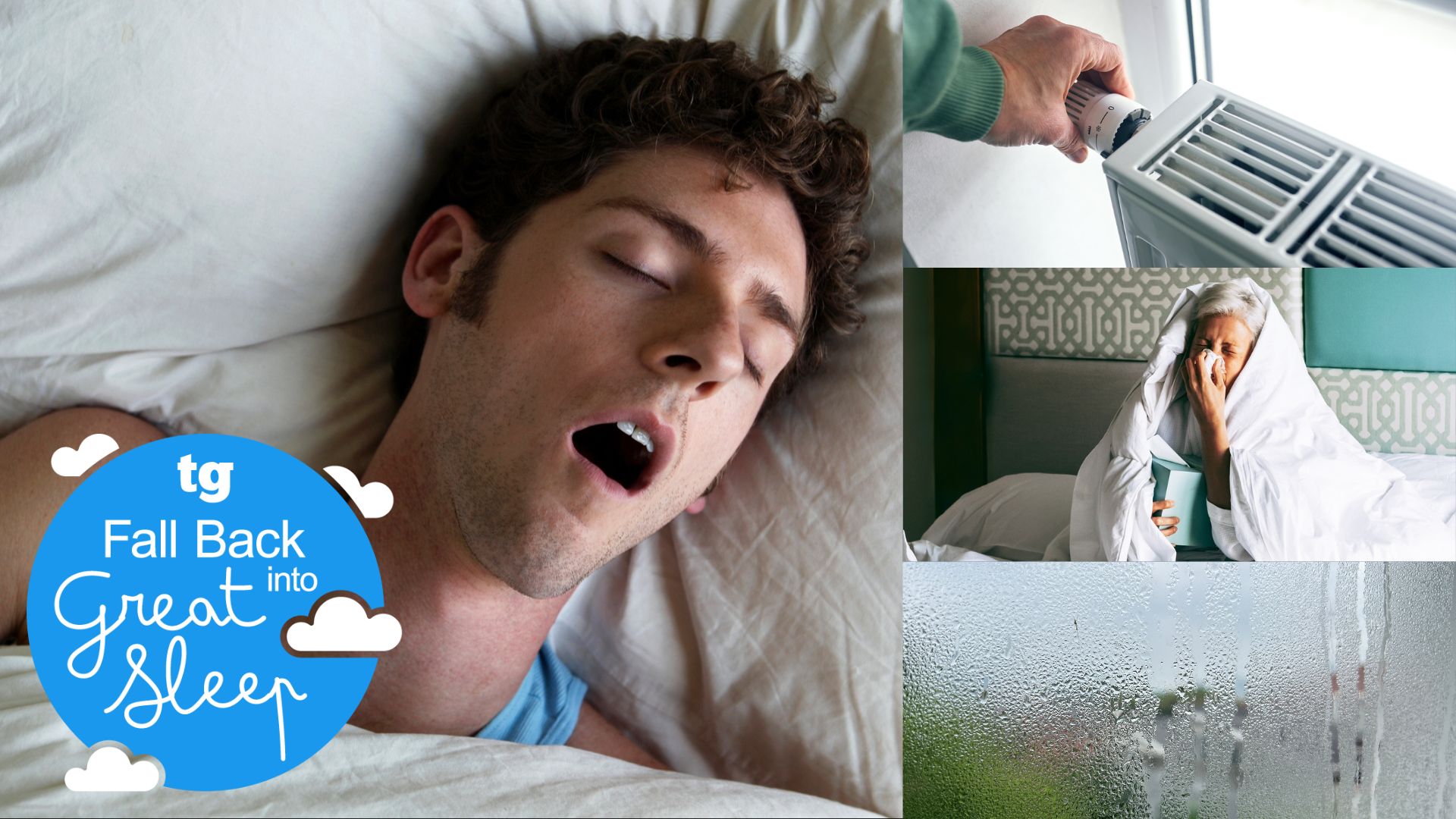
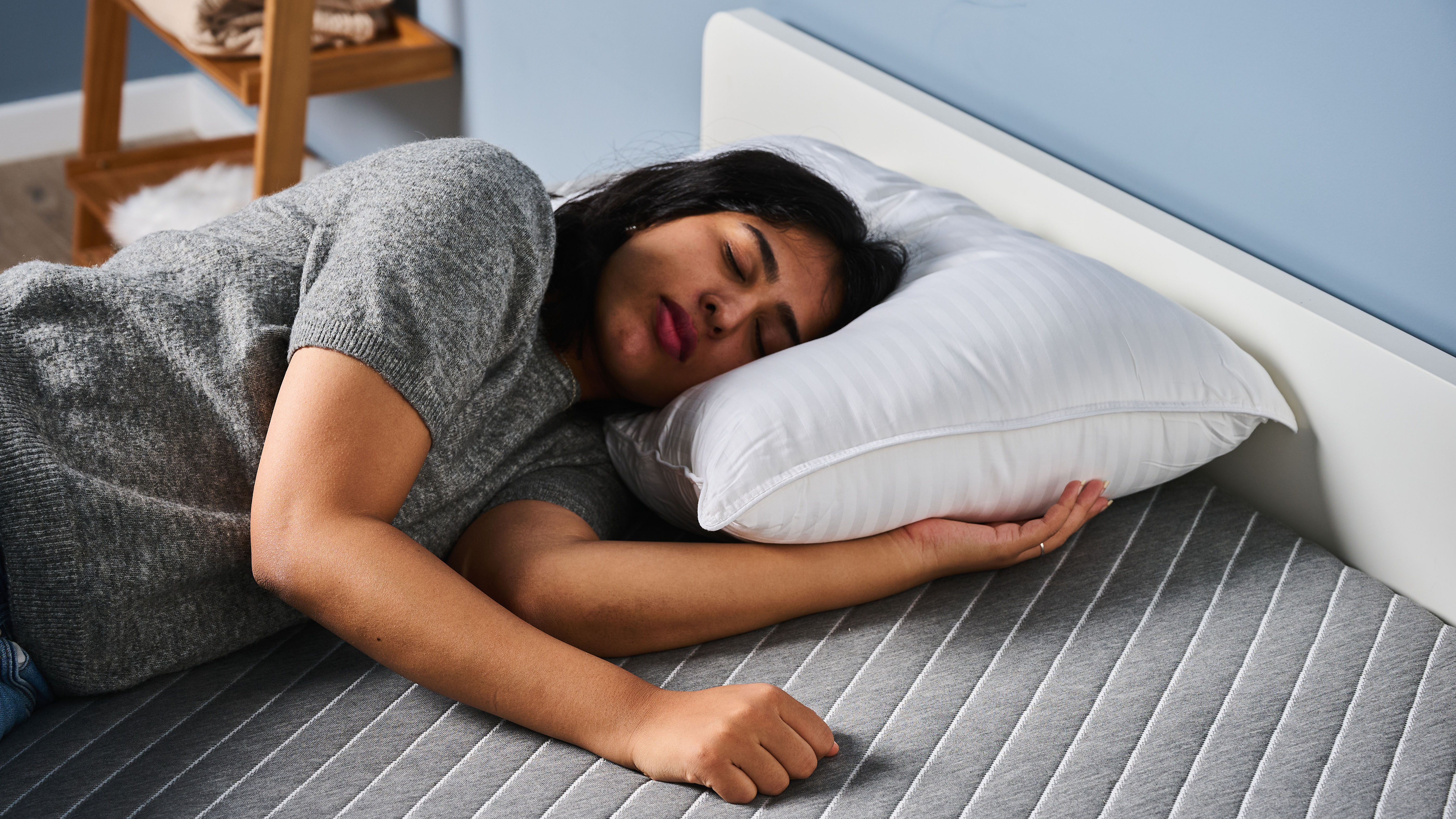
An unsupportive pillow can make snoring worse. Check out our guide to the best pillows we've tested this year to find the right choice for you.
It’s that time of year when the colder weather can impact your health in several ways, including how well you sleep. From dark mornings to cold nights, it's no surprise we struggle to get quality sleep during the season change.
And one key factor in this is snoring. While snoring can often be harmless, an increase in it (which we see during the winter months) can pose health risks and lower the quality of the sleep we get.
As part of our Fall Back into Great Sleep campaign, we’ve spoken to three leading sleep experts to find out more about why these factors increase our likelihood of snoring during the winter, the impact this has on sleep quality and what can help.
Why do we snore more in winter, and how does it affect our sleep?
“Snoring tends to get worse in winter because cold, dry air and indoor heating dry out and irritate the throat and nasal passages, narrowing the airways,” explains Dr William Lu, medical director at Dreem Health, the digital sleep clinic.
The result is feeling tired or groggy the next day, even if you technically got enough hours of sleep
“Seasonal colds, sinus congestion and allergies can also make nasal breathing difficult, and this can cause more mouth breathing, which, in turn, increases snoring.”
Snoring and congestion can significantly disrupt sleep quality. “When airways are partially blocked, it makes breathing less efficient,” he explains.
“This can cause brief awakenings or micro-arousals (that you might not even remember), and these prevent your body from reaching the deep, restorative stages of sleep. The result is feeling tired or groggy the next day, even if you technically got enough hours of sleep.”
Get instant access to breaking news, the hottest reviews, great deals and helpful tips.
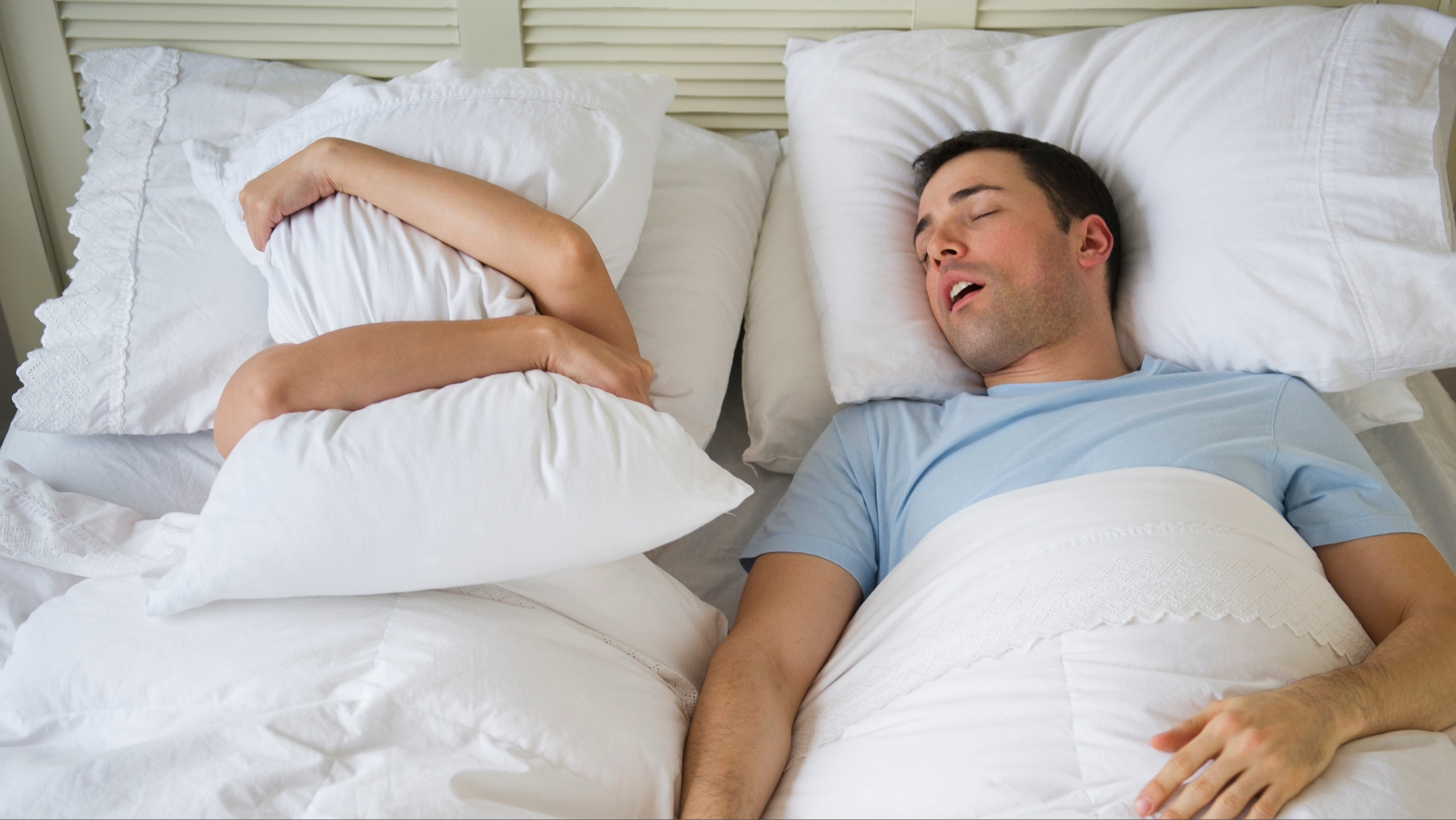
Signs you’re snoring more
If you don’t share a bed or your partner is a heavy sleeper, it can be difficult to deduce whether you do snore or not. But it’s important to know as regular snoring could be impairing your sleep quality. It could also be a sign of sleep apnea.
“If you wake up with a dry mouth, sore throat, or morning headaches, it could be a sign you’re breathing through your mouth at night due to snoring or untreated sleep apnea,” advises Dr Christoper Allen, a board-certified sleep medicine physician, pediatric neurologist, and sleep science advisor at Aeroflow.
A key sign you’re snoring in your sleep is feeling tired throughout the day
Morning headaches “occur when interrupted breathing increases carbon dioxide levels, causing blood vessels in the brain to dilate,” Dr Lu explains.
But a key sign you’re snoring in your sleep is feeling tired throughout the day.
“Feeling fatigued, and having trouble concentrating happen as a result of repeated pauses in breathing or micro-awakenings as these prevent deep, restorative sleep,” he says. “Mood changes are also common as poor sleep affects emotional regulation.”
Dr Jordan Weiner, a sleep apnea specialist who runs his own practice, Weiner Sleep Surgery, adds that part of the problem is snoring interrupts an essential brain clearing process.
“The frequent disruptions of sleep can prevent clearance of adenosine, a chemical produced in the brain during waking hours and cleared from the brain during deep sleep,” he explains.
“Higher levels of adenosine can cause sleepiness, and when this chemical is not completely cleared from the brain, it can leave individuals feeling like they did not sleep."

Five tried and tested ways to stop snoring this winter
Snoring can impair your sleep quality and will almost certainly annoy anyone who is trying to get a good night’s rest nearby. Here’s how to stop snoring this winter.
1. Try menthol nasal strips
“Nasal strips (such as the new Breathe Right menthol strips that are designed to ease congestion) can open nasal passages to improve airflow, making it easier to breathe through the nose,” explains Dr Allen.
“They can also help to reduce mouth breathing and vibration of the throat tissues.” Other nasal strips without menthol can also be effective in widening the nasal passages to allow more airflow.
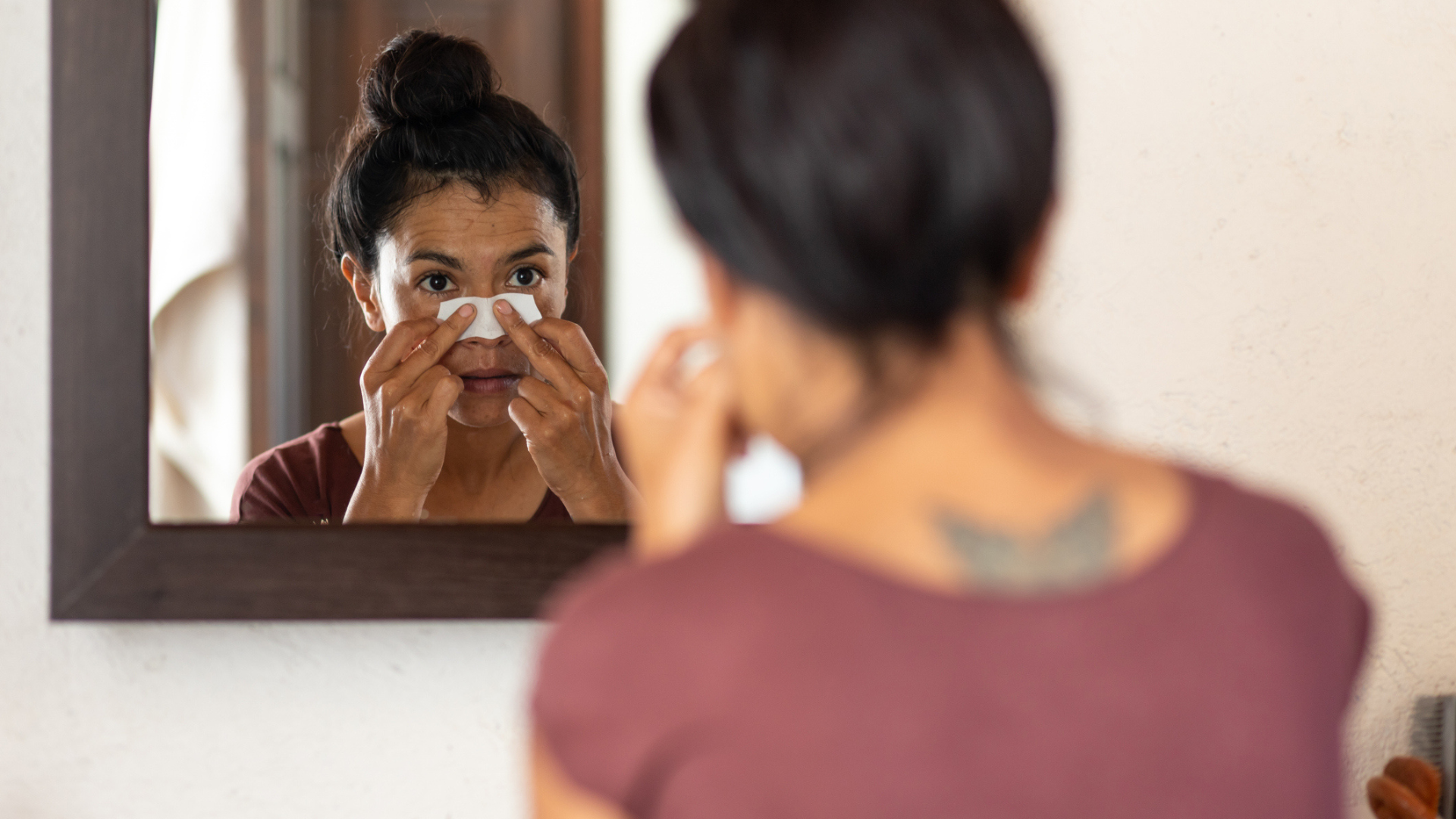
2. Change your bedroom humidity
Damp and cold air can worsen congestion and allergies, increasing your likelihood of snoring in the winter.
Using a dehumidifier can help with controlling the bedroom temperature if it’s too warm before bedtime. While a humidifier can improve the air quality in your bedroom if it's too dry, for example.
“A humidifier can also help with easing dryness in the nose and throat, and this can reduce inflammation that contributes to snoring,” Dr Allen adds.
3. Have a warm bath or shower before bed
This can be especially helpful for clearing congestion and blocked sinuses before bedtime, Dr Lu says. “A warm shower or bath before bed can loosen mucus and relieve congestion, making nasal breathing easier.”
Added to this, the steam that is generated from a warm bath or shower also benefits your sleep. “Steam can open nasal passages and relax the body, both of which supports better breathing and deeper sleep,” explains Dr Allen.
Moving to a cool bedroom from a warm bathroom can also help to lower your core body temperature and signal that it’s time to sleep.
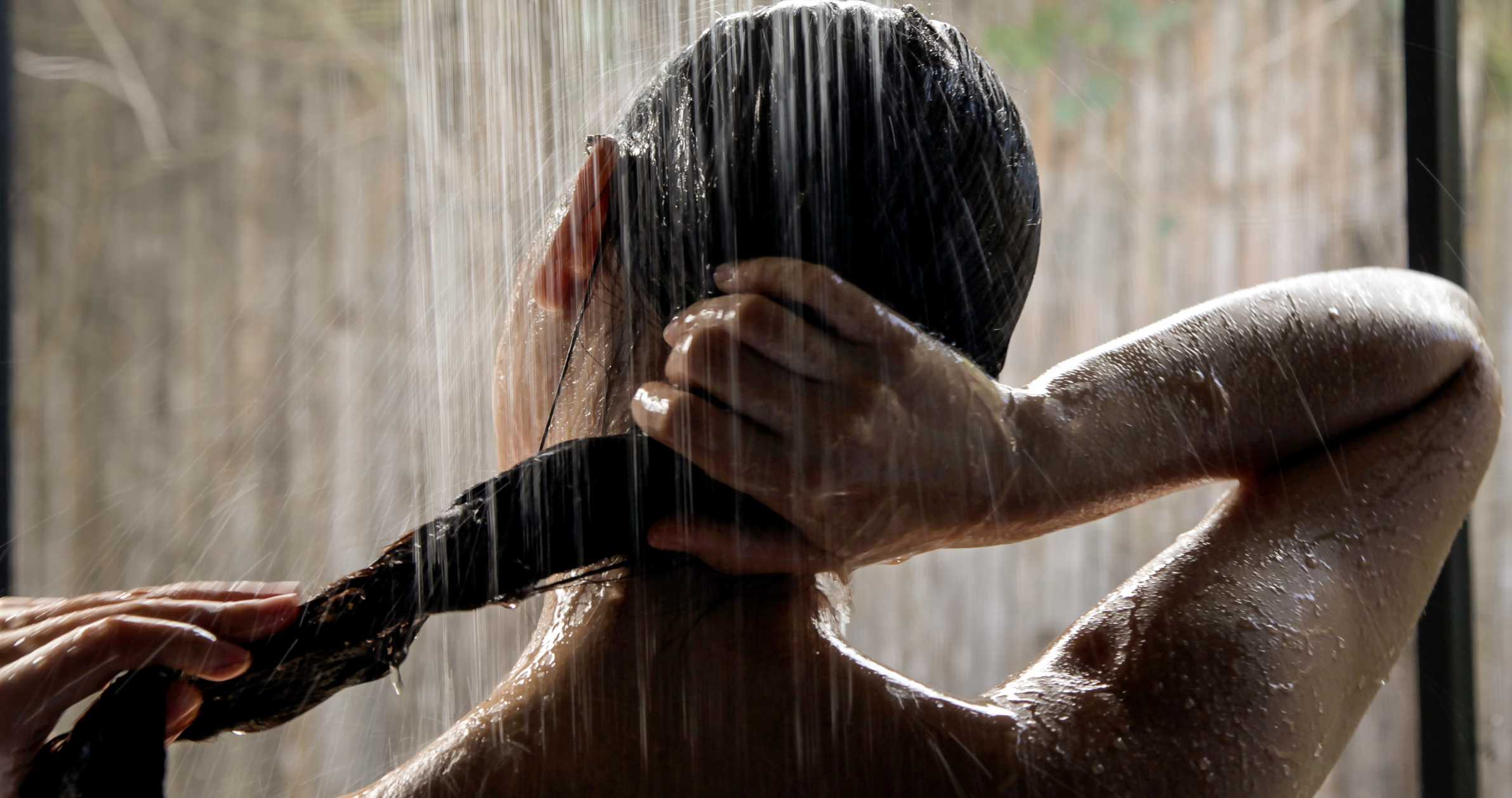
4. Resist alcohol and smoking
“Alcohol significantly worsens snoring and sleep apnea as it is a central nervous system depressant,” explains Dr Weiner.
Alcohol significantly worsens snoring and sleep apnea
“It can result in more relaxation of the muscles of the throat, creating a greater potential for collapse. With alcohol, there also tends to be more awakenings from sleep as well as reductions in REM sleep, the stage during which dreaming occurs.”
Smoking should be avoided at all times if you are experiencing problems with your sleep, he adds.
“Smoking causes paralysis of the tiny hair-like structures lining the walls of the respiratory system called cilia. The cilia function to sweep the thin coating of mucus from our lungs and nose,” Dr Weiner says.
“By paralyzing the cilia, mucus and particulates accumulate in the nose and chest leading to increased airway congestion and inflammation. This can worsen asthma and allergies, increase nasal congestion, and increase the risk of infection,” he explains.
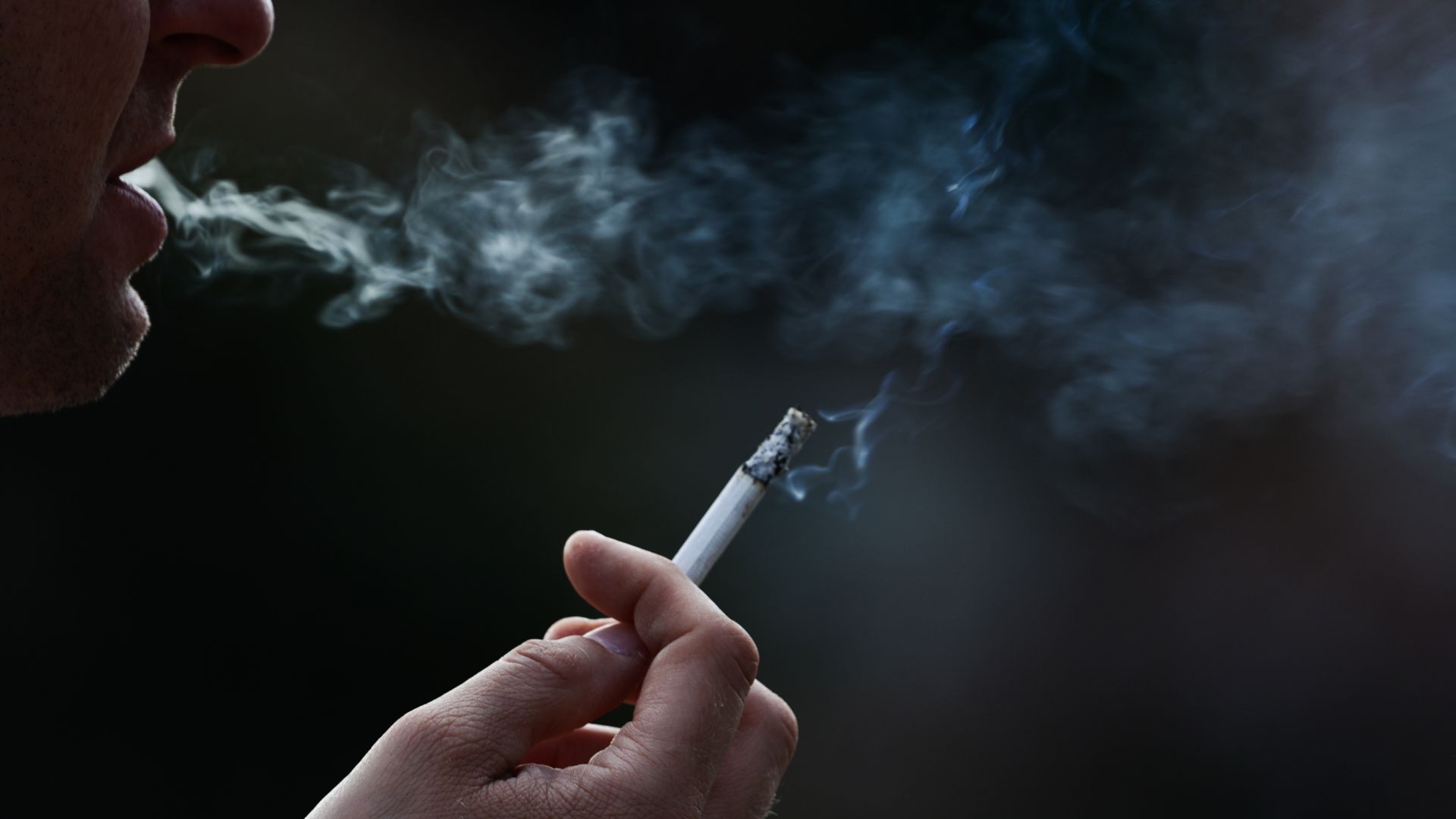
5. Adapt your sleeping position
Both snoring and sleep apnea can worsen when people opt to lie on their back. Switching to side sleeping can help to keep your airways more open, and this can be effective for reducing snoring. A side sleeper body pillow can also help with making the transition.
But if you’re prone to rolling onto your back while sleeping, Dr Weiner advises there are two strategies to help with preventing this.
“Traditionally, this would involve wearing a shirt with a pocket where you can place a tennis ball in the middle of your back,” he says.
“This works by making sleeping on your back too uncomfortable. In recent years, there have been vests available that create a bump in the middle of the back that have the same effect. We also now have electronic aids that will vibrate when a person rolls onto their back, signalling them to turn over onto their side.”

Julie writes about health, wellbeing and medical issues for a wide range of titles including Tom’s Guide, TechRadar, Be Healthy, Top Sante, Doctors.net.uk and many more. She is endlessly curious and loves writing about health as there’s always something new to find out more about. She’s also a member of the NUJ, Guild of Health Writers and Medical Journalists’ Association.
You must confirm your public display name before commenting
Please logout and then login again, you will then be prompted to enter your display name.
 Club Benefits
Club Benefits





